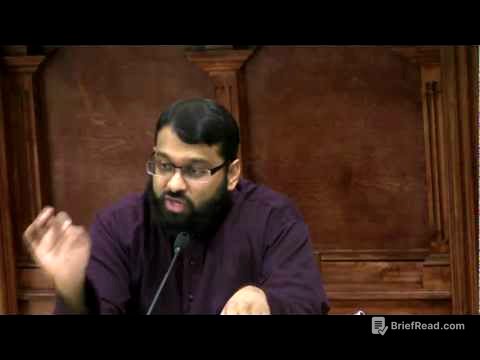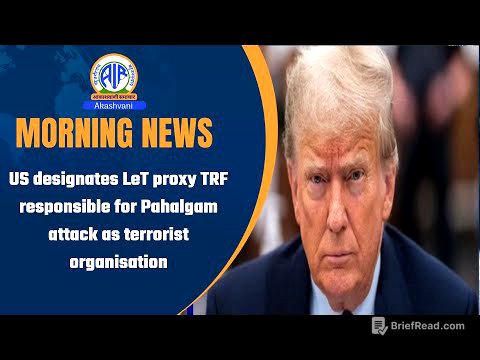TLDR;
This episode of Global Insight on Panafrican Media TV examines the effects of disinformation on shaping global world order. The discussion covers the definition of disinformation, its impact on politics, economics, culture, and international relations, and strategies to mitigate its negative effects. Key points include:
- Disinformation is a top global risk, affecting market volatility, corporate reputations, and foreign direct investments.
- The rise of social media and AI has amplified the spread of disinformation, making it harder to distinguish truth from falsehood.
- Combating disinformation requires media literacy, fact-checking, and international cooperation.
Introduction: The Impact of Disinformation on Global Order [1:01]
The program begins by highlighting the critical role of disinformation in shaping perceptions and impacting the global order. Disinformation, which has evolved significantly in the digital era, threatens national sovereignty and ideologies, especially amid renewed imperial interests. The discussion aims to analyse what disinformation is, differentiate it from misinformation, and explore how to mitigate its negative effects on society and the global world order.
Defining Disinformation in the Modern World [5:08]
Julia Burke defines the modern world as being beyond the "post-truth" era, existing in "shades of grey" due to the mass production of content with unclear sources and key points. This content, sometimes consciously, is used to promote narratives and ideas, impacting stock markets, exchange rates, and people's behaviour by triggering emotions and defensive patterns. She uses the transgender policy as an example of how propaganda can deeply affect decision-making processes. Navigating this ocean of information requires a strong moral compass and beliefs to avoid losing direction.
Economic Factors and the Prevalence of Disinformation [10:40]
Mr. Shield aka discusses how disinformation is recognised as a top global risk with profound impacts on the world economy. The World Economic Forum ranks misinformation and disinformation as the number one risk, ahead of extreme weather and geopolitical conflict. Disinformation affects market volatility, corporate reputations, and foreign direct investments. Companies spend billions on reputation management due to disinformation, which, unlike misinformation, is spread with the intent to harm.
Political Discourses and Public Perception [18:32]
Pekka Farle emphasises that disinformation has real-life impacts, citing the Rwanda genocide where media was used to vilify and dehumanise people. He criticises the portrayal of South Africa by global leaders, particularly the US President, and stresses the need to combat disinformation with facts. He distinguishes between misinformation (like Trump's statements, which he believes are genuinely believed) and disinformation (like Elon Musk's actions on Twitter, which he knows are misleading).
Media's Role in Information Warfare [26:00]
Julia discusses the difficulty for the media to navigate news-giving in the digital era, highlighting that interpretations of truth vary widely. She suggests focusing on facts and analysing the emotions triggered by content to identify potential beneficiaries of different interpretations.
Geopolitical Manipulation and Disinformation [30:12]
Steve argues that the US media is losing credibility by misinforming and disinforming, citing examples from the Ukrainian-Russian conflict and the COVID crisis. He disagrees with the characterisation of President Trump's actions regarding South Africa as disinformation, stating that there is video evidence of calls for violence against white people.
South Africa: Crime vs. Genocide [36:01]
Pekka Farle challenges Steve's claims about genocide in South Africa, stating that statistics show black people are more often victims of crime. He clarifies the historical context of the "Kill the Boer" song and insists there is no evidence it has led to deaths. He accuses Steve of perpetuating misinformation similar to that seen in the Oval Office.
New Alignments and Shifting Alliances [42:39]
Mr. Shield aka expresses shock at Steve's statements, calling them propaganda. He stresses the importance of providing proof and context when discussing sensitive issues. He questions how Steve would solve the land problem in South Africa, given its history of colonial land theft.
Analysing the Situation in South Africa [48:36]
Steve clarifies that he finds violence against both black and white farmers reprehensible. He acknowledges that the South African Supreme Court has stated that the "Kill the Boer" song is not intended to incite violence, but he believes words matter and such language constitutes hate speech.
The Oval Office Incident and Intentional Acts [54:35]
Pekka maintains that Trump genuinely believes white people are being targeted in South Africa, despite factual evidence to the contrary. He criticises Steve for relying on limited sources and ignoring international bodies that have investigated the matter and found no evidence of genocide.
Statistics and Reparations in Africa [1:15:14]
Pekka clarifies that statistics on violent deaths should be assessed by percentage of the population. He expresses scepticism about reparations for Africa, citing the West's historical treatment of Africans and the continent's inept leadership.
Redefining African Politics [1:21:44]
Mr. Shield aka discusses the importance of reparations for Africa as a moral imperative and a practical necessity for justice, healing, and sustained development. He highlights the need to restore dignity and justice for Africans subjected to degrading treatment for centuries.
Mitigating Disinformation: Recommendations and Strategies [1:26:50]
Steve suggests that the media needs to restore its credibility by avoiding agendas and reporting both sides of a story. He agrees with Pasque that Africa's resources should benefit Africans and that corruption needs to be addressed.
Practical Parameters to Reduce False News [1:33:07]
Pekka suggests teaching students how to identify signs of disinformation and verifying content. He notes that social media platforms have stopped implementing measures to rectify disinformation, making individual-based solutions essential.
Ensuring Trustworthy New Alliances [1:35:41]
Mr. Shield aka stresses the importance of vetting information and ensuring accuracy, especially with the use of AI. He notes that different parties have different interests, making it challenging to achieve trustworthy information sharing.
The Possibility of Universal Agreement [1:39:30]
Steve does not believe that everyone will agree on everything, but smart people can find ways to understand what they know and don't know. He warns against those pushing agendas and those seeking attention through outrageous content.









